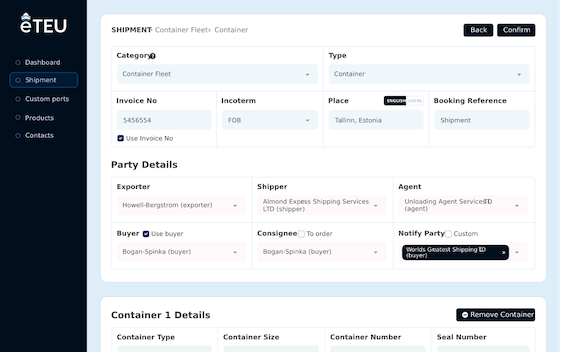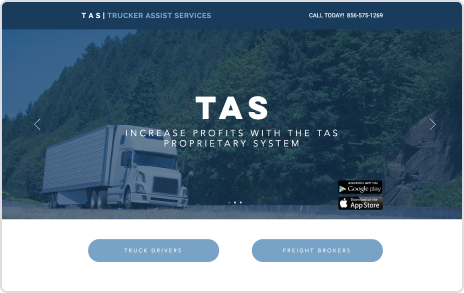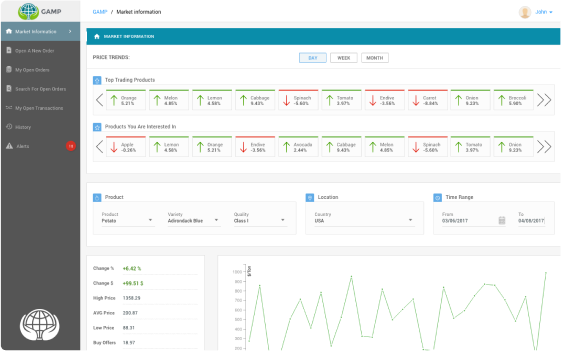Blockchain-backed paperless documentation management for shipping companies.
Consulting
We can consult on constructing a practical and beneficial technical solution for your product.
Custom software
We deliver highly specialized, cutting-edge solutions for all niches of the logistics industry.
Dedicated teams
Jumpstart your long-term projects with a team of hand-picked professionals powered by AI.
Services
Technologies
Shipping document management platform

- CountryUnited Kingdom
- Duration2022
- Services
- Industry
- Clutch 5.0Read this review
Summary
Curious to learn how traditional industries like maritime can streamline outdated processes by implementing a digital solution? Bear with us. In this case, we will:
- Walk you through the development of a paperless documentation management platform much needed for shipping companies.
- Explain how product revamp and implementation of blockchain technology enabled our client to build a secure and speedy system for document generation and exchange.
- And show you how a small-size team extension helped the client to outdo the project timeline and launch to market 6 months faster.
Intro to the industry
In any niche, processing documentation and managing it correctly is a complex process, but the shipping industry faces additional difficulties: a high volume of data, a tight timeline for data transferring, and a high vulnerability to human error, which can result in penalties and reputational damage.
Let’s talk some data: 91% of Logistics and Supply Chain companies paid penalties in 2022, largely, due to the fact they had no unified database for paperless documentation. In the end, a single standard of data storing and transferring impacts your compliance big time.
Knowing how many businesses come across the very same issues, our client, eTEU, was aiming to build a niche solution that would address them. Excessive costs and low speed of operations are nothing new for shipping companies, so eTEU planned to deliver a digital tool that would rule out multiple challenges with a single product.
Client Overview
eTEU is a digital platform that streamlines the generation, editing, and transferring of documents via an easy-to-use management system. Unlike many repository-like solutions that simply provide a space for data storage, they deliver an additional layer of operational transparency and security.
While shipment processes often look like a complicated web of dozens of stakeholders and simultaneous operations, data quality, and protection are often left at the crossroads of it.
For that reason, eTEU had a simply put, but not so simply executed task: to make documentation history trackable and data transferring secure.
What were the challenges?
Going paperless requires a standardised system of documents
Without a system of standardised documents in the industry, there can be incompatibilities between companies. This means that a format that a company uses for one shipment and its relevant parties, might not fit the needs of another. As such, there can be inconsistency between the documents produced, and their final forms that are sent out. This makes it difficult to manage shipments at both ends, especially when there are multiple people involved in the process (e.g., salespeople or couriers).
A great example of this is the Bill of Lading. According to McKinsey, this document accounts for 10-30% of total trade documentation costs. Regarding digitalisation, switching to an electronic Bill of Lading can save up to $6+ billion a year for carrier companies due to streamlined interactions and improved customer journeys.
By-default data security that doesn’t limit accessibility
Industries such as Maritime, Freighting, Logistics, and Transportation in general, all have strict requirements for data protection and information security. That said, you have to oversee certain risks associated with online transactions that need to be taken into consideration.
For example, the security of the data being transferred can be compromised if there are no proper encryption methods or if it is not properly stored. Another concern is whether or not all parties involved can access the required information. It is also important that all parties involved in this process have access to the same information at all times since any discrepancies will result in delays or other problems when trying to resolve them later on.
Efficient data transferring speed
High loads of documentation transferred among multiple subjects require a high speed of transaction processing in order to keep all shipment operations intact and ensure maximum efficiency.
This process requires accuracy from all parties involved: shippers, freight forwarders, carriers, and customs authorities. This means that real-time information exchange is critical to ensure all persons involved have access to updated information at any time during the shipping process.
Elimination of the data exploitation risk
The ability to trace all changes and edits makes it possible to verify the authenticity of the document and its origin. This is particularly relevant in the case of original documents, which are usually kept in paper form and can be altered easily by unauthorized persons. In addition, digitalization increases productivity and provides transparency during the entire process.
After thoroughly evaluating the requests our client had, we defined a specific skill set needed for the development. Not only were they vital for implementing the chosen technology, but also for suggesting alternatives and iterations that would fit the product best.
Even though eTEU had built a primary version of the product and formed a skilled internal team, oftentimes, capacity and technical expertise can become bottlenecks in the development process. And while you try to address those issues by shifting in-house capabilities, a timeline is pushed further and further. In saturated markets delayed launch can be a crucial point for losing potential clients.
Let’s find the right solution together
Solution
Having intel from the client, we were able to set up a clear roadmap for the project and define the precise tech expertise needed from our side. Not only did the project require an extensive experience in back-end development, but also agility to future changes and modern approach. In the long run, eTEU wanted to have a sophisticated infrastructure to easily scale up the product.
What’s important is we didn’t start the project from scratch. The client already had an MVP in place and needed our help with setting up the functionality, updating the existing capabilities, and finding the best tools to enable efficient data processing.
It’s quite evident that the go-to idea was to enable clients to generate a library of templates that are compliant with industry standards and still can be customised according to the needs. But how did we actually achieve that?
First, we have to address the elephant in the room - the regulations. All documents of such sort should comply with industry standards and be approved by official institutions. So we needed to make sure the digitalised documentation follows all industry best standards. Since eTEU works with a precise set of companies in Shipping, their documents require approval from authorities, particularly The International Group of Protection and Indemnity Clubs.
Now, the second factor in building an effective system to generate and transfer documents is security. Having multiple counterparts and loads of information, protecting it becomes quite a challenge. All these requests wouldn’t be possible, or at least achievable within such a short time, if we didn’t add Blockchain technology to the picture.
As said, our main goals were to ensure safe data transferring and provide a solution for tracking edits and changes to omit any alterations. In eTEU's case, all transfers are recorded on the blockchain network and leave an immutable audit trail. Thanks to a shared record, any transaction between the parties can be validated. Blockchain technology also helps to speed up the document exchange process due to high transaction speed.
While all the major tech and business decisions had a large impact on the final solution, we also want to share a grasp of smaller implementations. Simply because they are quite important for the internal team, which continues to support the product day to day.
Let’s dive into a few tech insights first. If you’re not familiar with some of them, read further, things will become clearer once you hear how they changed the functionality.
- New tool for a simplified process of a database migration: in order to help the client optimise the migration process, we offered an alternative tool. Thanks to it, it’s now easier to track database migration history as well as employ all missing migrations, which are crucial for further data transformations in the existing database.
- Implementation of swagger for documentation management: this decision was driven by a major reason - we needed to make API documentation accessible (and readable) to both developers and the machines, which is specifically what swagger was able to do.
- The transition from REST API to GraphQL: such a switch allowed our client to speed up front-end development and, as a result, deliver the final solution in time.
While these details may seem relatively small compared to the project size, they give a good glimpse of many unseen components that keep a larger infrastructure intact. Of course, implementing and adjusting such aspects during the development process requires both a deep understanding of technical needs and a vision for how the product may grow further.
Technology stack
The combination of technologies we used to complete this task.
Results
All such implications and iterations lead us to an end-product, which is the updated eTEU platform - efficient, secure, and compliant documentation workflow management functionalities.
Digital transformation can be a long and complex journey for many companies in Logistics and Supply Chain. Yet with the help of solutions like eTEUs, they can reach digitalisation goals gradually and consistently. Businesses not only gain transparency and operational efficiency but experience fewer disruptions and issues with digital integrations.
Imagine, your company is reliant solely on paper documentation and once the board decides it’s time to go digital, you spend time and money to navigate where to start that journey and with whom. Sounds complicated, right?
After working with a handful of companies on their digital journey, it’s safe to say the eTEU’s approach is what we recommend to most organisations: go digital step by step. You don’t have to start large-scale transformation right away. It will drain your resources and extend the timeline, which is often crucial for products aiming to launch asap.
Pro tip: know your capacity limits, and don’t be afraid to request additional resources when needed. For small and mid-size companies, development can take ages when executed internally. In reality, when market supply grows with the speed of light, you need to be able to build, iterate and deliver as fast as possible. And that’s exactly what development partners are for.
If you’ve worked with tech startups, you know how sensitive the timing is to win over clients and secure investors’ trust. And while eTEU had an experienced tech team who built the first version of the product, they needed extra hands to deliver the new one on time. Our task was to take on the back-end part to set up the functionality and as a result, help speed up the development. The client preferred to work in close cooperation. That’s when Adexin’s dedicated team model came in handy. We took part in regular standups and maintained direct communication throughout the whole project.
It’s no secret that many tech companies are concerned about including external partners in the development process due to multiple reasons. In turn, it can lead to extended timelines and postponed launches. eTEU, on the other hand, was able to speed up the process by 6 months.
In the case of eTEU, our goal was not only to supply them with the required tech expertise but to take over the processes which ensure security, compliance, and operational efficiency. In turn, it allowed them to free up internal capabilities and focus on other important tasks.
Client's review
Not sure if Adexin is suitable for the task? Schedule a free consultation.
Other Case Studies
Here are more case studies to help determine if Adexin is the right fit for your business/project.


